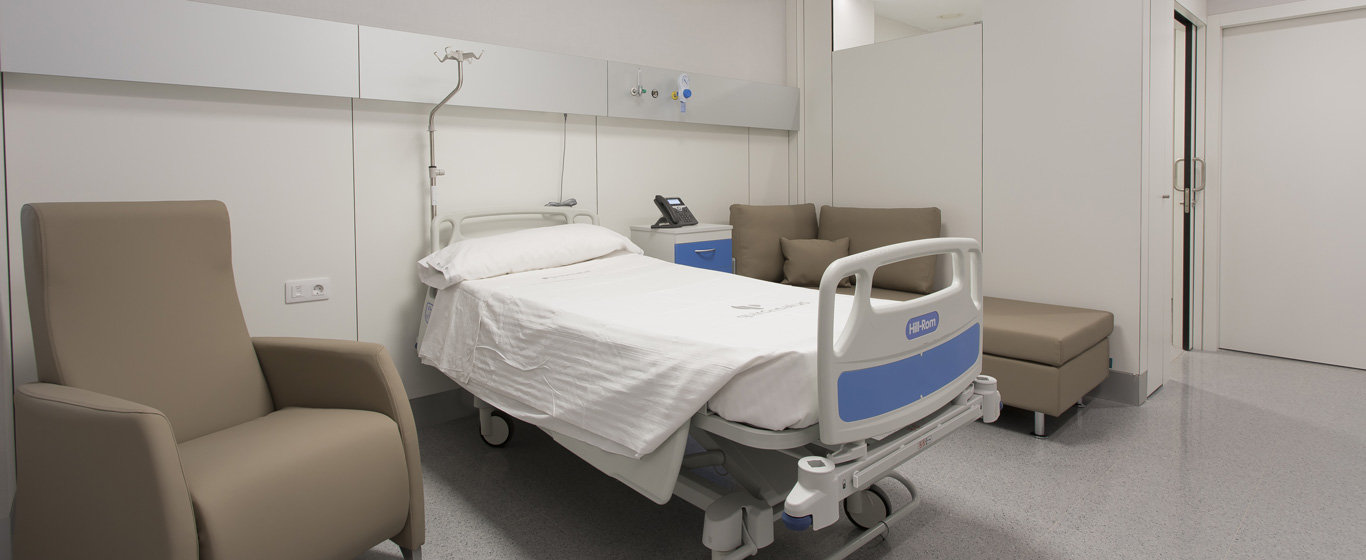Colon Polyps
Is it serious to have colon polyps? All the information about the causes, symptoms, and treatments for this disease.
Symptoms and Causes
Colon polyps are small lumps that form on the inner lining of this part of the large intestine. While in most cases they are collections of benign cells, over time they can develop into colon cancer. For this reason, regular monitoring is recommended to detect them in the early stages.
There are two types of polyps:
Benign Polyps: These are made up of healthy cells and can come in various forms:
- Adenomatous polyps are the most common. Regardless of their histology (tubular, villous, or mixed), they should be removed when detected because they have a high likelihood of turning cancerous over time.
- Familial adenomatous polyposis is the hereditary condition in which a large number of polyps form in both the colon and the rectum.
- Hyperplastic polyps: These are low risk because they do not have the capacity to degenerate. They are seen as small lesions in the tissue.
- Lipomas and myomas: These are adipose tissue tumors that develop under the mucosa and usually do not become malignant.
- Serrated polyps: These are epithelial lesions with a saw-like appearance that can appear singly or in multiples. They have a high potential for malignancy.
- Malignant polyps: These are collections of cells that already contain cancerous cells when detected. The severity varies depending on the tumor size and whether there is malignant tissue in the stalk and pedicle.
Typically, colon polyps do not present symptoms, which is why it is crucial to perform screenings on individuals over the age of 50 without a family history.
Symptoms
Most of the time, colon polyps are asymptomatic. When symptoms are present, they may include:
- Diarrhea or constipation.
- Abdominal pain.
- Blood in the stool, rectal bleeding.
- Anemia.
Causes
The main cause of polyps is abnormal growth of the cells that form the inner lining of the colon.
Risk Factors
Some factors that increase the risk of developing colon polyps include:
- Being over 50 years old.
- Having a family history.
- Having any intestinal disease.
- Smoking and excessive alcohol consumption.
- Being obese.
Complications
Polyps can degenerate and turn cancerous, leading to colon cancer.
Prevention
Although not all polyps can be prevented, it is recommended to:
- Follow a balanced diet low in fat and rich in fruits and vegetables.
- Reduce alcohol consumption.
- Quit smoking.
- Increase vitamin D levels.
What Doctor Treats Colon Polyps?
Colon polyps are diagnosed and treated by specialists in the digestive system. Radiologists and oncologists may also be involved in treatment.
Diagnosis
Since most colon polyps do not present symptoms, they are often diagnosed during screenings for people without a history or in routine tests for those at higher risk. The most commonly used techniques include:
- Stool test: Non-invasive, this test is used when suspicion is low. It can detect blood or signs of polyps. If results are positive, a colonoscopy should be performed.
- Colonoscopy: This involves obtaining images from inside the colon by inserting a flexible tube with a camera at the end through the rectum.
Treatment
When benign polyps are detected in the colon, complete removal is the most appropriate treatment, as it prevents their degeneration into cancerous cells. The following procedures can be performed:
- Polypectomy: Polyps are removed using a probe. It is common for them to be removed during the diagnostic colonoscopy.
- Proctocolectomy: Severe cases of familial adenomatous polyposis may require removal of the colon and rectum, though this is not common.
In cases of cancerous polyps, the condition requires a multidisciplinary, personalized approach in which, in addition to the techniques described above, radiation or chemotherapy treatments are applied, along with thorough follow-ups.

































































































